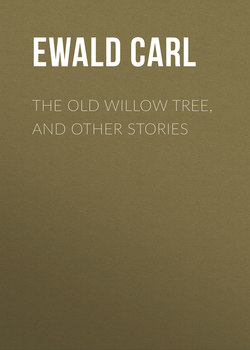Читать книгу The Old Willow Tree, and Other Stories - Ewald Carl - Страница 8
The Old Willow-tree
8
ОглавлениеAnd the years came and went and time passed, as it must and will pass.
The willow-tree became more and more decayed and the hole filled with earth and more customers arrived. One spring there was a dainty little sprout, which the tree welcomed under the impression that it was a dandelion.
"Hullo!" said the sprout. "What do you think I am?"
"I have the highest opinion of you," said the willow-tree. "But you are still so small. May I ask your name?"
"I am a strawberry-plant," said the sprout. "And one of the best. My own idea is that I am the equal of those which grow in the manor-garden. Just wait till I get my fruit: then we shall see."
"Goodness me!" said the willow-tree. "If I could only understand where you came from!"
Another sprout came, which proved to be the beginning of a black-currant-bush. A third came, which grew into a dear little mountain-ash. Every summer there were a couple of dandelions. The bees came and buzzed and sucked honey and flew away with it to their hives. The butterflies flitted from flower to flower, sipped a little honey here and there and ate it up. They knew they had to die, so there was no reason for saving it.
"It's wonderful!" said the willow-tree. "If only I knew where all this good fortune comes from!"
"Never mind about that: just take it as it comes," said the elder-bush.
"You will have a fine old age," said the wild rose-bush.
"You're getting hollower and hollower," said the oak. "Remember what I told you about my poor old uncle."
"He has gradually become quite weak-minded," said the nearest poplar.
"Quite weak-minded … quite weak-minded … weak-minded," whispered the poplars along the avenue.
The blackbird was the first who had visited the willow-tree and he returned several times each year. One day he came in a great state of fright and asked if he might hide up there. There was a horrid boy who had been shooting at him all the morning with his air-gun:
"I am really preserved at this time of the year," he said. "But what does that brat of a boy care about that? And, if I must lose my life, I would rather be caught in a proper snare."
"I should have thought it would be better to be shot," said the willow-tree. "Then you're done with for good and all."
"I don't agree with you," said the blackbird. "While there's life there's hope. You can always hang on in the snare and struggle and feel that there may be a chance of escaping."
"Yes, indeed," said the willow-tree, pensively. "That's just my case. I also am caught in a trap and know that I must die soon, but I cling to life nevertheless. Well, I have now attained a blessed old age, as the wild rose said. If only I knew where all the dear creatures who grew in my top came from!"
"Well, I can tell you that," said the blackbird. "You may be sure that most of them come from me."
Then he described how fond he was of red berries of every kind. He resorted in particular to the garden of the manor-house, which was full of the nicest things. Then, when he sat and digested his food in the willow-tree, he usually left something behind him, something in the way of one seed or another.
"Is that true?" said the willow-tree. "Yes, of course it's true. So I really owe all my happiness to you!"
"Probably," said the blackbird and whistled with a very consequential air. "We all of us have our mission in this world, thank goodness… But just look: as I live, there's a beautiful ripe strawberry!"
He ate the strawberry and said, "Hum!" and "Ha!" and "Ho!" for it was so nice:
"It's just as good as those which grow in the squire's own beds," he said. "But I almost think it has got a still nicer flavour by growing up here in you, you old Willow-Tree."
"My dear Blackbird," said the strawberry-plant, "you're often at the manor-house. Won't you do me the favour to tell the squire that I am growing up here?"
"That I will certainly not do," said the blackbird. "In the first place, nothing would induce me to tell any one else where a good berry grows. In the second place, I have been getting so stout and fat lately that I must be a bit careful. Otherwise, it might occur to the squire that strawberries taste twice as nice on top of roast blackbird."
"That's very tiresome," said the strawberry-plant. "I know that the squire has said he will eat no other berries than those which grow in our family; and there are so very few of us. I also heard a bird sing that he had come home from Italy; and I am sure that, if he knew I grew up here, he would himself climb up and pick my berries."
"Lord preserve us!" said the willow-tree. "Would the squire himself really climb into my top? That honour would be greater than I could bear!"
"It certainly would," said the oak. "For you are growing hollower every day. Your long branches are not so green this year as last. You are beginning to look more and more like my unhappy uncle. You're approaching your end, Willow-Tree."
"You may be right," said the willow-tree. "We must all undergo our lot. I myself feel that my shell is getting thinner and thinner; and it has holes in it, besides, in two places down below."
"Away with him!" said the nearest poplar. "He's a disgrace and a reproach to our family."
"Away with him!.. Away … away … away!" whispered the poplars along the avenue.
